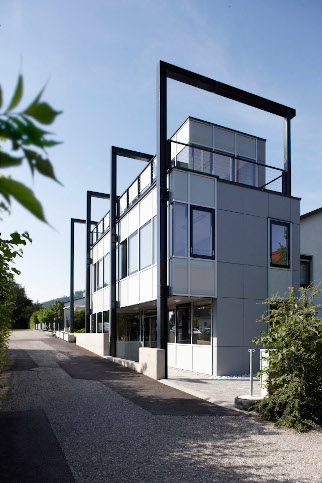About PSP
PSP
PSP is an innovative Austrian company that develops and operates advanced bridge monitoring systems.
PSP's systems use lightweight embedded hardware on-site that requires little infrastructure support.
The on-site hardware connects, via the mobile telephone network, to a server located on our premises that performs analysis, archiving and reporting.
With our systems, clients can monitor the structural health of their bridges (iSHM) and measure heavy goods traffic (iBWIM) from their office.
iBWIM and iSHM give engineers and managers the information they need to make informed decisions about bridge safety and maintenance.

Founded in 2004 as a sister company to Petschacher Consulting, we combine expertise in structural engineering with excellence in embedded systems and data analysis.
Our know-how in these areas has allowed us to develop sensors and data acquisition components that are not only optimised for our structures,
but which are robust, reliable and long term stable.
No less important, our experience in structure inspection gives us the insight into how and where the correct sensors should be employed.
Increasingly, we are applying data analysis techniques and stochastic approaches for modelling both traffic patterns and the evloution of damage in structures.
This is an area in which we have been research active for some time in the academic community and it is now beginning to pay dividends in our commercial work.
As a group, the staff of PSP possess a unique skill set that allows PSP to be a leader in this field.
PSP is a Carinthian company with international sales.
We have a highly qualified international staff and run systems throughout Europe and Asia.
We form part of the network of Carinthian high technology companies and were awarded the 2011 Carinthian Innovation and Development Prize.


Innovation
PSP is committed to research and development. Since our first monitoring system, iBWIM, was introduced in 2011 we have continuously developed and improved our systems.
In 2018 we launched our Structural Health Monitoring (SHM) system, PSP Logger and are currently expanding our range of precision, low drift sensors.
Our first commercial product, the BAUT infrastructure database, provides a framework within which information about a structure, be it numerical, photographic or descriptive, can be stored and accessed.
BAUT is still in service with the Austrian roads authority, ASFINAG, after 15 years.
We also collaborate with academic and research institutes, both within Carinthia and beyond, to develop novel sensors and apply advanced pattern recognition algorithms.
In addition to our development work we are also active in academic research, and have been members of several research consortia. We continue to publish novel work at academic conferences.
Sustainability in Europe
Europe's economic future depends on the smooth transport of goods and vehicles. One of Europe's key competitive advantages is her extensive and well developed infrastructure. Much of the European road bridge infrastructure was built in the 1970's and will soon be entering middle age. In the coming years it will be increasingly prone to failures and large parts of it will need to be replaced.
The economic and environmental costs of replacement and its associated disruption will be great.
The key to maintaining operation and managing maintenance will be monitoring. By observing the structural health of bridges, faults can be detected early and their development tracked.
Decisions about whether to intervene early in the fault's evolution—when repairs will be cheaper, or to postpone to the next scheduled maintenance when traffic disruption will be lower, have significant economic implications.
With quantitative data, engineers can make informed decisions about the need and scheduling of maintenance.
The systems we build at PSP help engineers make informed decisions about the future of bridges. By helping engineers apply proactive and targeted maintenance, our systems help avoid disruption and extend the working life of bridges. At PSP we believe our systems can make a significant contribution to maintaining Europe's road and rail infrastructure.
